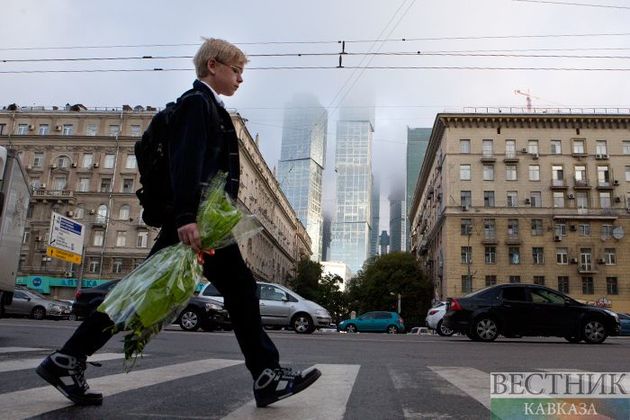The new academic year in Russia, both in schools and in universities, will traditionally begin on September 1, classes will be held in full-time format, but subject to all sanitary requirements, Russian Education Minister Sergei Kravtsov said today. This will bring children back to school for the first time since distance learning, which they had to switch to in March due to COVID-19. How did this forced break affect the students?
A key event that changed the lives of people around the planet was a new type of coronavirus pandemic. It reshaped the usual way of life and posed many challenges to the world, including fundamentally new ones. Only 5 months have passed since March 12, when the World Health Organization officially announced the pandemic, and only now, when the inhabitants of the planet are gradually returning - alas, not to their usual life, but still to some more stable forms of existence, one can try to understand how the COVID-19 outbreak affected the world.
From the very beginning of the spread of the disease, doctors noticed that children are least susceptible to the new type of coronavirus, and their disease usually proceeds in a milder form, although, of course, they can be carriers of it. Does this mean that the pandemic did not affect the younger generation in any way? Hardly.
According to psychologists, for a harmonious and correct development, a child needs to feel safe, which implies more or less stability: school, circles, extra classes, walks, plans for summer holidays, preparation for exams ... And suddenly changes begin to follow one another. So, in Moscow on March 14, Mayor Sergei Sobyanin introduced voluntary school attendance, and a week later all Moscow schoolchildren were transferred to distance learning. This was followed by the cancellation and postponement of exams, All-Russian test works, internal school tests ... Of course, this could not be avoided: the authorities had to act in accordance with the epidemiological situation. But were the children ready for such drastic changes?
Separately, it should be said about distance learning: there was a lot of criticism in its address, but on the other hand - was there any alternative? In a situation where school attendance turned out to be impossible, the "distance" allowed somehow not to miss the educational process. And the children, by the way, adapted to the new system much faster than their parents, and (I want to believe) the spring months were still not in vain for them.
Self-isolation became another test for the child's psyche. It was easier for those who could get out, for example, to the dacha and go out into the fresh air, without fear of meeting with a police patrol. In the city, walks on the balcony are in trend. Technologies also saved the situation: a "meeting" with classmates / friends in a video conference helped to brighten up the forced loneliness. Undoubtedly, there was a plus: in the new conditions, children communicated more with their parents, because often earlier, in the intense rhythm of their usual life, there was simply not enough time for this. Now fathers and children got a chance, paradoxical as it may sound, to get to know each other better.
If the deficit of live communication could be compensated in one way or another, then with the lack of movement everything was more complicated. Not everyone could go out of town, not every family has exercise equipment in the apartment, and the advice of nutritionists at least walking in circles around the room caused rather nervous laughter. Proper nutrition alone could hardly save the day. Doctors warned: due to the forced hypodynamia, we will face an obesity epidemic in children, which will have to be fought, and there are already such cases.
How difficult all these tests turned out to be for the psyche of schoolchildren depended largely on the behavior of the adults around them. Children are sensitive to the general emotional background of loved ones. If a mother is constantly worried and not sure whether she will cope with tomorrow, what should the child think? Of course, in the absolutely unusual situation of the pandemic, it was difficult to maintain equanimity and calmness, and adults, unwillingly, could "infect" children with suspiciousness or even panic.
Summer holidays gave some respite. The ghost of the teacher on the monitor has receded, the problem of "freezing" of the electronic diary has lost its urgency, thanks to the easing of quarantine restrictions, it is finally possible to walk on the street and - observing a social distance - communicate with friends. Moreover, the world opened from new sides for children who had been deprived of impressions for several months. After a deficit of positive emotions, even seemingly simple joys are felt more sharply. And the forced break in the routine gave the young generation an infrequent opportunity to rethink the old, familiar things, to realize themselves and their place in the world, including in the world of adults.
Indeed, in moments of serious challenges, people rally to cope with them together. The pandemic has become a test not only for adults, but also for children: in many situations they had to join forces to successfully solve the difficulties that arise almost daily. Perhaps in this way the traditional generation gap will at least to some extent be overcome, and fathers and children of our time will be able to better understand each other.
I would like to hope that these five months were not in vain for the schoolchildren, that they matured, realized that they were not "suspended" in the air, but with many threads are connected with the world and people and, to a certain extent, are also responsible for them, felt their involvement to the further destiny of humanity. And this is correct, because the young generation is the future of our Earth.






